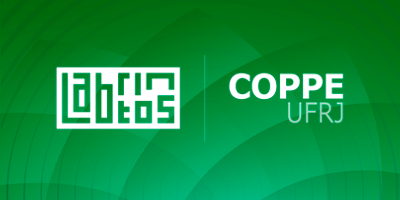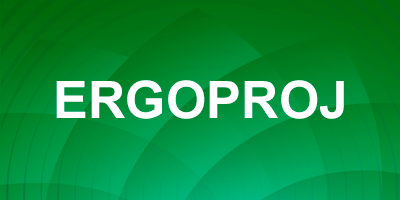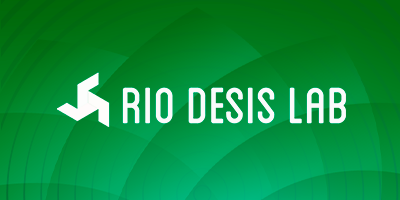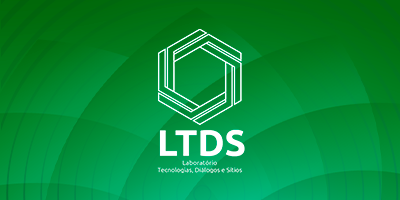 labThe Pro-Small and Medium-sized Enterprise (PRO-PME) is coordinated by Professor Francisco José de CM Duarte. Its main goal is to provide a research laboratory for the managerial and technological development of MSMEs (Micro, Small and Medium Enterprises), that generate more than a quarter of the country's GDP. It operates along the triad of Teaching, Research and Extension to develop and improve knowledge in production engineering for MSMEs. As part its practice, it enhances its teaching by bringing together students (undergraduate, master's and doctoral) for the study of new business models and economic models for MSMEs, with particular concern for sustainability, which cycles to extension and research projects, aiming at the continuous improvement and improvement of teams and companies.
labThe Pro-Small and Medium-sized Enterprise (PRO-PME) is coordinated by Professor Francisco José de CM Duarte. Its main goal is to provide a research laboratory for the managerial and technological development of MSMEs (Micro, Small and Medium Enterprises), that generate more than a quarter of the country's GDP. It operates along the triad of Teaching, Research and Extension to develop and improve knowledge in production engineering for MSMEs. As part its practice, it enhances its teaching by bringing together students (undergraduate, master's and doctoral) for the study of new business models and economic models for MSMEs, with particular concern for sustainability, which cycles to extension and research projects, aiming at the continuous improvement and improvement of teams and companies.
PRO-PME hosts budding research groups Garagem GetUp and CRIE. Garagem GetUp is concerned with entrepreneurship, technology and innovation, working in Design Thinking for small and medium-sized companies, validating hypotheses and finance for startups and the entrepreneurial process. The CRIE group is a multidisciplinary group for the development of processes, methodologies and products, focusing on the areas of Knowledge Management, Management of Complex Systems, Evaluation of Intangible Assets, Big Data (data-driven decision) and Open Data.
Visit the PRO-PME website.
Visit the Garagem GetUp website.
Visit the CRIE website.
 The Technological, Organizational and Services Innovation Laboratory (LabrInTOS), is coordinated by Professor Marcus Vinicius de A. Fonseca. Its main goal is to spread the culture of innovation, demonstrating its connection to the enhanced competitiveness of organizations, companies and institutions. Innovation is a key issue for companies and institutions. In this laboratory, professionals are encouraged test new ideas and learn to investigate complex issues of innovation in Environment 21, to identify and create opportunities and new markets.
The Technological, Organizational and Services Innovation Laboratory (LabrInTOS), is coordinated by Professor Marcus Vinicius de A. Fonseca. Its main goal is to spread the culture of innovation, demonstrating its connection to the enhanced competitiveness of organizations, companies and institutions. Innovation is a key issue for companies and institutions. In this laboratory, professionals are encouraged test new ideas and learn to investigate complex issues of innovation in Environment 21, to identify and create opportunities and new markets.
The laboratory has four main lines of research: Innovation for Sustainability and Social Responsibility; Public Policies for Science, Technology and Innovation; Science, Technology and Innovation Management; and as of recently, Startups, Entrepreneurship and Venture Capital. The four shared main concerns are SCALE, ACTION SPHERE, EXTENSION and SPEED. The most exciting frontier - SPEED - is related to the pace of innovation, dynamic consolidation and accelerated innovation. Incorporating this new approach into the means and ways of designing business plans for startups hard techs is the objective of this line of research. In this sense, the RESIDENCE Program, which has been implemented by LabrInTOS, aims to consolidate the path between the idea and the market, training researchers and inducing new business based on the results and technologies generated in all of COPPE/UFRJ thirteen graduate programs.
Visit the LabrInTOS website.
 The Laboratory of Ergonomics & Projects (ERGOPROJ) is coordinated by Professor Francisco José de CM Duarte, and its main objective is to apply the methodological approach of the Ergonomic Evaluation of Work (AET) in order to generate knowledge about work activities and, thus, build guidelines to transform the organization and spaces, as well as to contribute to the development of new projects.
The Laboratory of Ergonomics & Projects (ERGOPROJ) is coordinated by Professor Francisco José de CM Duarte, and its main objective is to apply the methodological approach of the Ergonomic Evaluation of Work (AET) in order to generate knowledge about work activities and, thus, build guidelines to transform the organization and spaces, as well as to contribute to the development of new projects.
The group works in research and consultancy work for companies in the industrial and service areas. The team's experience involves interventions in projects in various sectors, such as industry, legal services, Tele assistance, restaurants and museums, among others. Currently, the group's main focus of activity is in the oil and gas sector. The most recent work includes research projects on offshore platforms and rigs, support for FPSOs (Floating Production Storage and Offloading) design projects, and projects for onshore and offshore control centers, as well as the development of methodologies for diagnosis and culture improvement industrial security.
The Laboratory has partnerships with other universities in Brazil and abroad, among which the Ergonomics laboratories of USP, UFMG, and Université Lumière Lyon 2 (France) stand out. Contributions between institutions are frequent and include participation in congresses, lectures and workshops, exchange of researchers and joint publications.
In this sense, in addition to offering contributions to companies, ERGOPROJ generates academic debates at different levels and trains graduate researchers at COPPE / UFRJ - master's, doctoral and post-doctoral students - in conducting integrated and multidisciplinary research.
 Visit the ERGOPROJ website. Visit the ERGOPROJ website. |

Rio DESIS Lab is a UFRJ Design, Social Innovation and Sustainability laboratory coordinated by Professor Carla Martins Cipolla. It carries out initiatives that integrate several disciplinary areas to support citizens in the city of Rio de Janeiro to act as agents of change, promoting quality of life and sustainability.
The design process aims to support collaborative processes through the idealization and development of solutions, bringing innovation techniques to be social, environmental objectives. The solutions are developed with citizens and institutions, starting from the identification of local demands and focus on the promotion of new interactions and interpersonal relationships for the co-production of value aiming at a broad benefit of society.
The Laboratory is part of the DESIS Network (Design for Social Innovation and Sustainability), which brings together more than 50 laboratories in universities around the world (http://www.desisnetwork.org). The international coordination of the network is currently at Rio DESIS Lab.
Noteworthy recent projects developed with national and international support on the themes of Product and Service Design, Innovation Management, Social Entrepreneurship include: USIS - Support Unit for Social Innovation at UFRJ; LASIN - Latin American Social Innovation Network; DxCC - Design for Collaborative Cities - Participatory processes in public spaces (in Rio de Janeiro: OPDMB - The Project of My Neighborhood); Lab Escola 3D - Technology, design and culture "maker"; and TRANSIT - Transformative Social Innovation Theory.
|
|
 The Technologies, Dialogues and Sites Laboratory (LTDS) is a network laboratory created in 1996 (as the Technology and Social Development Laboratory) is coordinate by Professor Roberto Bartholo. It operates in the training of human resources, research and extension, advisory, consultancy, project development, multimedia production, publications and organization of technical and scientific events. It includes the Strategic Studies Group (GEE) which deals with issues related to international security, national defense and public security from the political, tactical, logistical, technological and strategic perspectives.
The Technologies, Dialogues and Sites Laboratory (LTDS) is a network laboratory created in 1996 (as the Technology and Social Development Laboratory) is coordinate by Professor Roberto Bartholo. It operates in the training of human resources, research and extension, advisory, consultancy, project development, multimedia production, publications and organization of technical and scientific events. It includes the Strategic Studies Group (GEE) which deals with issues related to international security, national defense and public security from the political, tactical, logistical, technological and strategic perspectives.
It currently comprises three lines of research:
• Digital Humanities - this line is based on Vilém Flusser's philosophical, anthropological perspective to articulate different fields of contemporary academic knowledge (engineering, computing, social sciences, arts, etc.) in an effort to understand the transformations that the emerging "digital world" brings for the human condition.
• Relational Heritage - reflects on the place of heritage in contemporary times supported by Richard Rorty's theoretical perspective, aiming to expand and deepen our sense of community and affirm and value heritage as an ethical-political choice that takes place in the midst of networks of relationships and institutions.
• Situated Entrepreneurship is based on the logic of Effectuation, Saras Sarasvathy's contribution to contemporary theories of entrepreneurship. The theoretical perspective emphasizes the strategic importance of uncertainty, unpredictability and rooting in local truths and practices for entrepreneurial activity.
